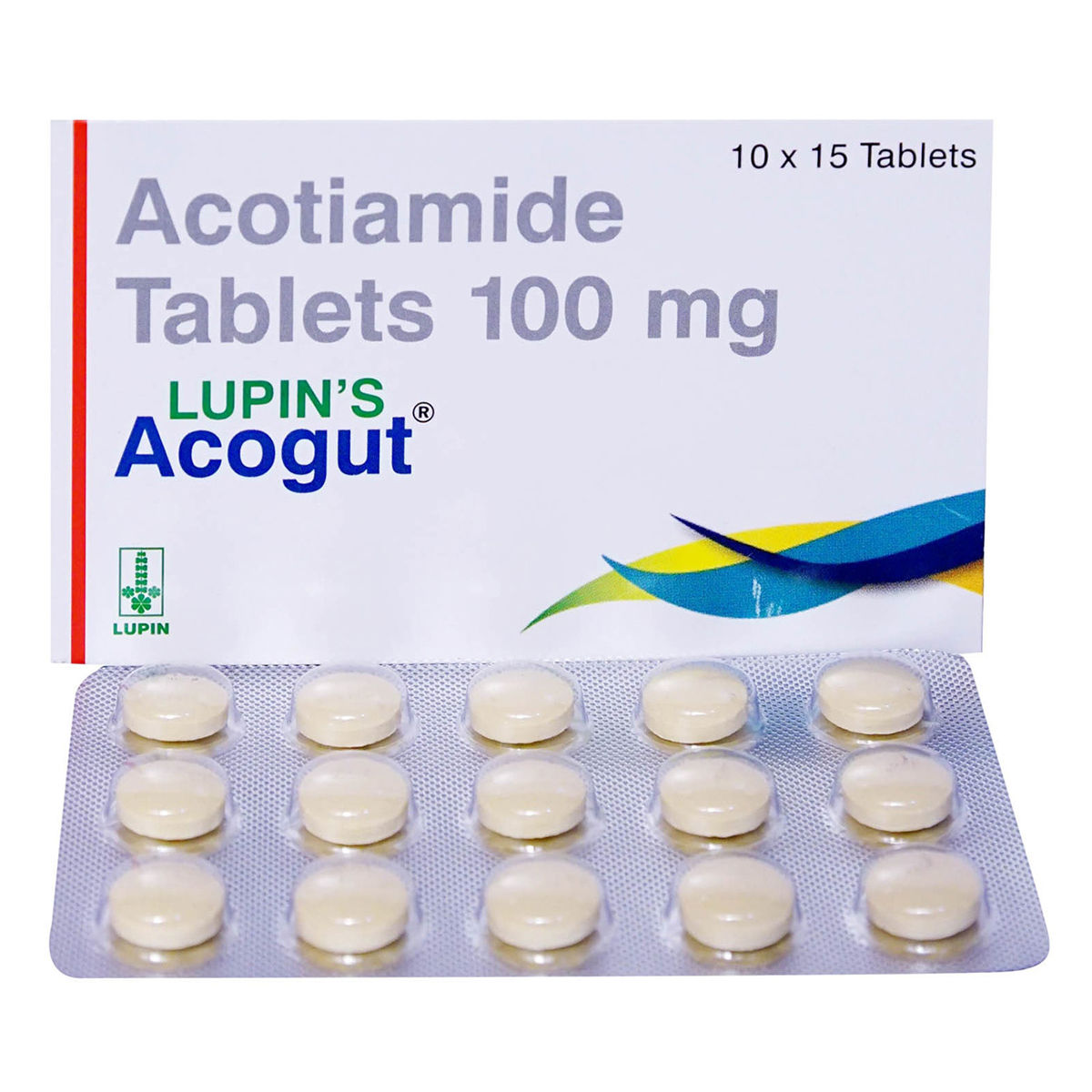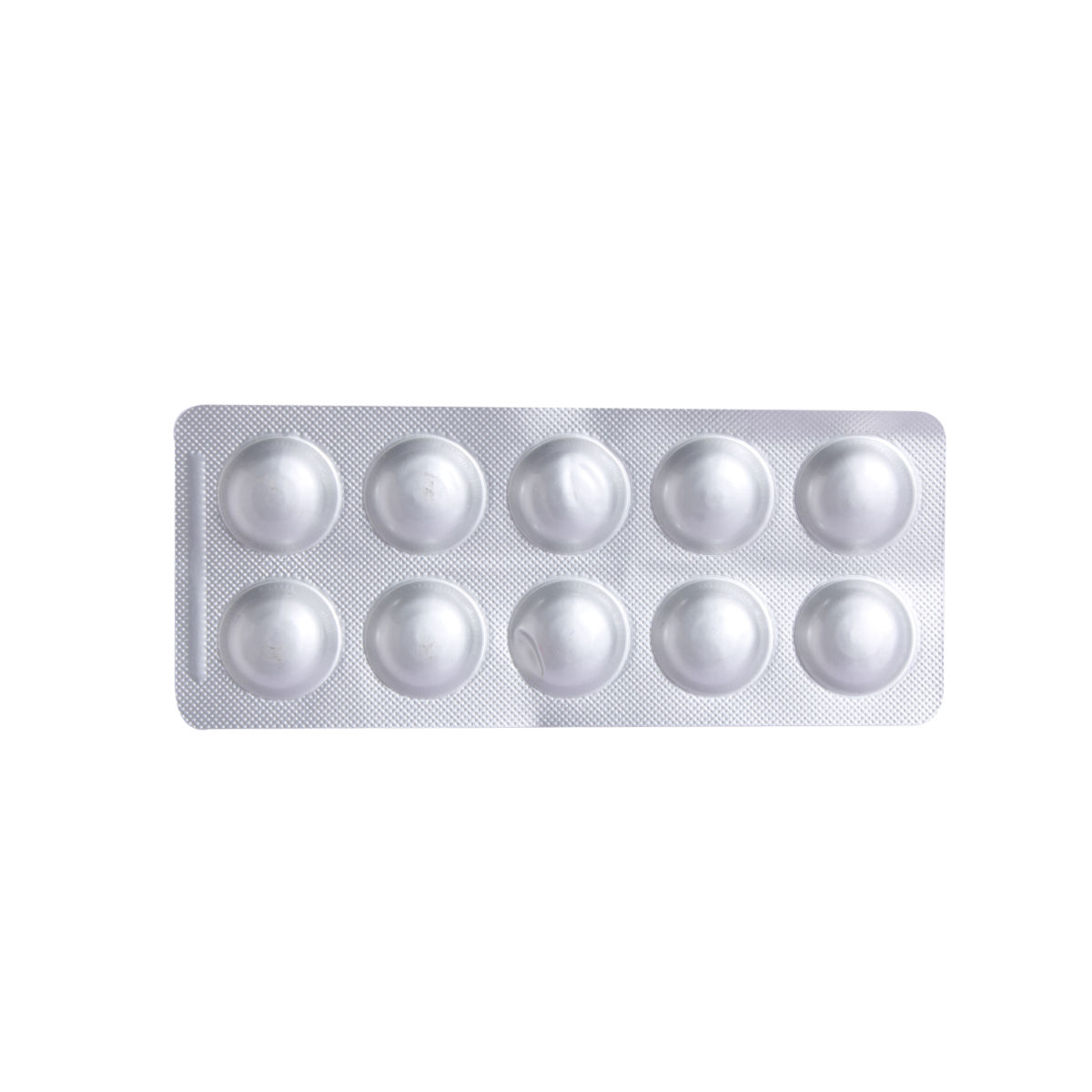Acotiamide Hydrochloride
About Acotiamide Hydrochloride
Acotiamide Hydrochloride belongs to a class of drugs called 'gastroprokinetics' primarily used in the treatment of functional dyspepsia (indigestion). Functional dyspepsia is a term for frequent signs and symptoms of indigestion that have no obvious cause. Symptoms include stomach pain, burning sensation, bloating, feeling of fullness, and nausea after meals.
Acotiamide Hydrochloride contains 'Acotiamide hydrochloride' that increases the level of acetylcholine, which increases the gastrointestinal peristalsis movement. Thereby, it increases intestine motility, accelerates gastric emptying time, and improves food movement throughout the gastrointestinal tract.
Take Acotiamide Hydrochloride as prescribed by your doctor. You are advised to take Acotiamide Hydrochloride for as long as your doctor has prescribed it for you, depending on your medical condition. In some cases, Acotiamide Hydrochloride may cause headache, diarrhoea, constipation, rashes, and dizziness. Most of these side effects of Acotiamide Hydrochloride do not require medical attention and gradually resolve over time. However, if the side effects persist or worsen, please consult your doctor.
If you are known to be allergic to Acotiamide Hydrochloride or any other medicines, please tell your doctor. If you are pregnant or breastfeeding, please inform your doctor before taking Acotiamide Hydrochloride. Acotiamide Hydrochloride may cause dizziness, therefore, do not drive or operate machinery unless you are alert. The effect of Acotiamide Hydrochloride with alcohol is unknown; it is advisable to inform your doctor before consumption of alcohol with Acotiamide Hydrochloride.
Uses of Acotiamide Hydrochloride
Medicinal Benefits
Acotiamide Hydrochloride is primarily used in the treatment of functional dyspepsia (indigestion). It helps relieve the symptoms like bloating after a meal, pain/discomfort in the upper abdomen, and early satiety (feeling full after eating only a little food). Acotiamide Hydrochloride works by increasing the level of acetylcholine, which increases the gastrointestinal peristalsis movement. Therefore, it increases intestine motility, accelerates gastric emptying time, and improves food movement throughout the gastrointestinal tract.
Directions for Use
Storage
Side Effects of Acotiamide Hydrochloride
- Headache
- Diarrhoea
- Constipation
- Rashes
- Dizziness
Drug Warnings
Please inform your doctor if you are known to be allergic to Acotiamide Hydrochloride or any other medicines. Before taking Acotiamide Hydrochloride, inform your doctor if you ever had gastrointestinal bleeding, jaundice, intestinal perforation (small hole in the intestine), kidney, liver, or heart problems. If you are pregnant or breastfeeding, please inform your doctor before taking Acotiamide Hydrochloride. Acotiamide Hydrochloride may dizziness, therefore, do not drive unless you are alert. The effect of alcohol on Acotiamide Hydrochloride is unknown. It is advisable to inform your doctor before consumption of alcohol with Acotiamide Hydrochloride.
Drug Interactions
Drug-Drug Interactions: Acotiamide Hydrochloride may interact with medicines such as anticholinergic agents (dicyclomine, trihexyphenidyl, ipratropium, belladonna alkaloids, benztropine mesylate, flavoxate, atropine, scopolamine, and hyoscyamine).
Drug-Food Interactions: No interactions were found.
Drug-Disease Interactions: Inform your doctor if you have gastrointestinal haemorrhage and allergy.
Drug-Drug Interactions Checker List:
Safety Advice

Alcohol
cautionThe interaction of alcohol with Acotiamide Hydrochloride is unknown. Please consult a doctor before consuming alcohol while using Acotiamide Hydrochloride.

Pregnancy
cautionPlease consult your doctor if you are pregnant, your doctor will prescribe only if the benefits outweigh the risks.

Breast Feeding
cautionPlease consult your doctor if you are breastfeeding, your doctor will prescribe only if the benefits outweigh the risks.

Driving
cautionAcotiamide Hydrochloride may cause dizziness. Do not drive or operate heavy machinery unless you are alert.

Liver
cautionTake Acotiamide Hydrochloride with caution, especially if you have a history of Liver diseases/conditions. The dose may be adjusted by your doctor as required.

Kidney
cautionTake Acotiamide Hydrochloride with caution, especially if you have a history of Kidney diseases/conditions. The dose may be adjusted by your doctor as required.

Children
cautionPlease consult your doctor if you have any concerns regarding the usage of Acotiamide Hydrochloride in children.
Habit Forming
Diet & Lifestyle Advise
- Avoid foods such as tomatoes, coffee, chocolate, spicy and fatty foods as they may cause heartburn or worsen the condition.
- Eat small portions of food frequently.
- Do regular exercise, for a minimum of 30 minutes per day. Maintain healthy body weight as obesity may also cause heartburn.
- Avoid foods that can worsen your symptoms, like citrus fruits, coffee, high fat, pickled and spicy foods.
- Avoid consumption of alcohol and quit smoking.
Patients Concern
Disease/Condition Glossary
Functional dyspepsia (FD): Functional dyspepsia is a term for frequent signs and symptoms of indigestion that have no obvious cause. Some ways to decrease discomfort caused by functional dyspepsia include medications, lifestyle changes, and therapy. Symptoms include stomach pain, burning sensation, bloating, feeling of fullness, and nausea after meals.
FAQs
Acotiamide Hydrochloride belongs to a class of drugs called 'gastroprokinetics' primarily used in the treatment of functional dyspepsia (indigestion).
Acotiamide Hydrochloride contains Acotiamide hydrochloride that increases the level of acetylcholine concentration, which increases the gastrointestinal peristalsis movement. Therefore, it increases intestine motility, accelerates gastric emptying time, and improves food movement throughout the gastrointestinal tract.
Avoid foods that can worsen your symptoms, like citrus fruits, coffee, high fat, pickled and spicy foods.
Acotiamide Hydrochloride is not recommended for people suffering from gastrointestinal haemorrhage (bleeding in the gastrointestinal tract), mechanical obstruction (physical blockage of the small intestine), or perforation (small hole in the intestine).
Acotiamide Hydrochloride may cause diarrhoea as a common side effect. However, if the condition persists, worsens with fever, watery stools, or consistent stomach pain, please consult a doctor. Also, drink plenty of water while taking Acotiamide Hydrochloride to prevent dehydration.









